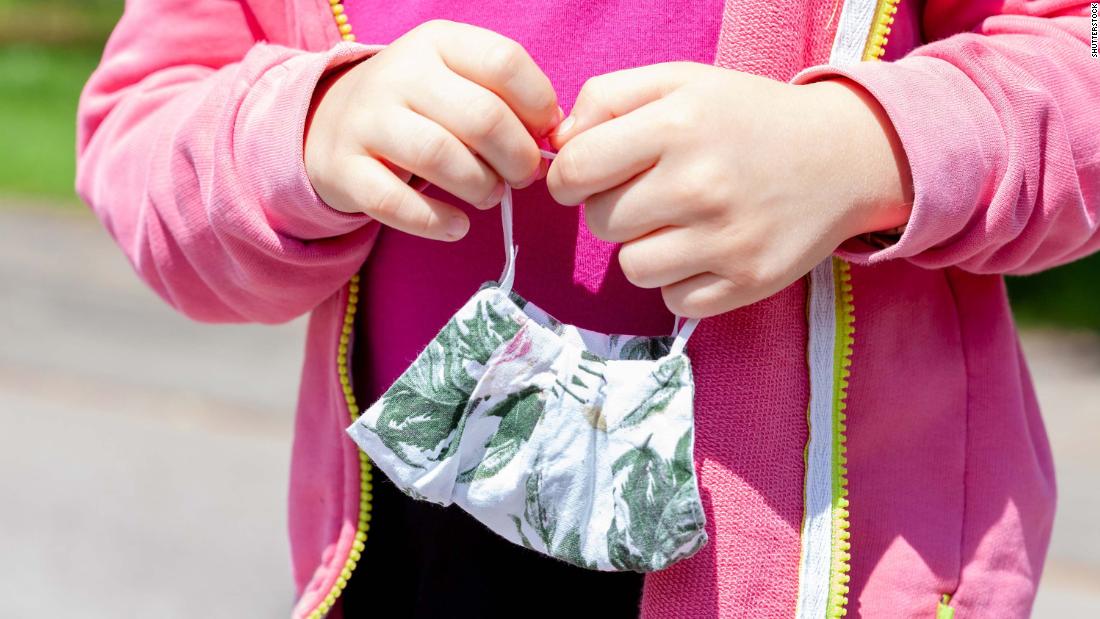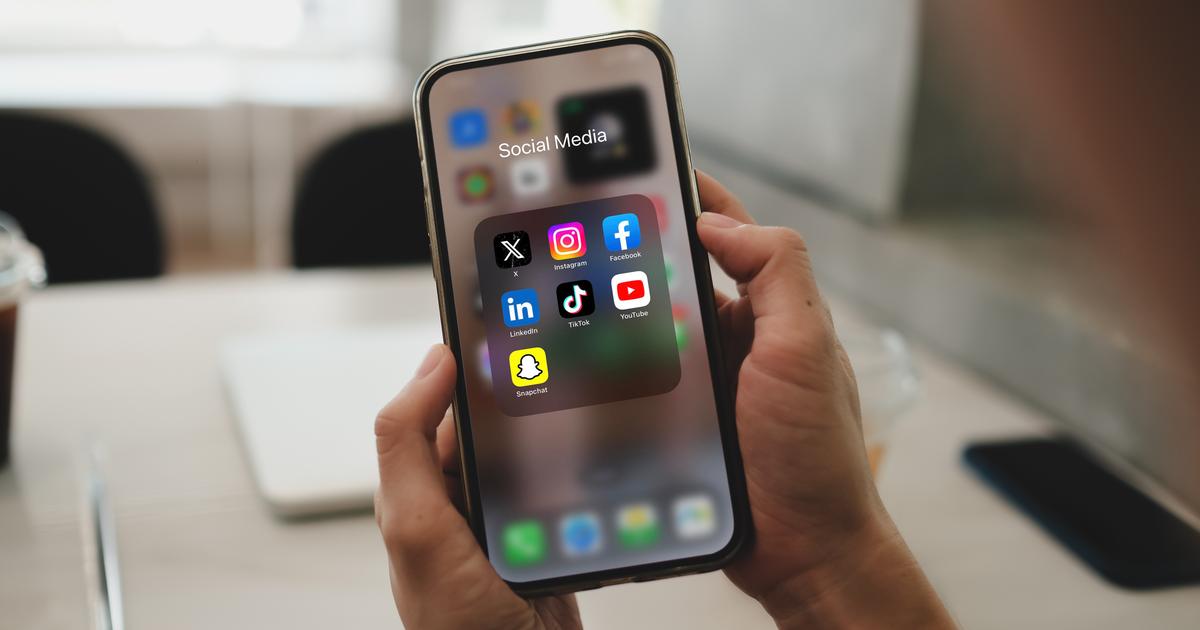Tips to prevent the spread of covid-19 in children 1:34
(CNN) -
Anxiety is high among parents as more children return to school unprotected by a Covid-19 vaccine for at least a few more months.
Parents have a reason to be concerned.
After months of declining cases, the virus is finding the unvaccinated.
Teens as young as 12 can be vaccinated against COVID-19, but younger children are not yet eligible.
Children accounted for nearly a quarter of the cases reported during the week ending Aug. 26.
The numbers have "increased exponentially," reaching levels the United States has not seen since last winter, the American Academy of Pediatrics (APA) said Tuesday.
Children have largely been spared the worst of COVID-19 (hospitalizations and deaths are rarer in children than adults), although children's hospitals are filling up at COVID-19 hotspots across the country.
advertising
The vaccine for children may not arrive soon enough, but the process is taking longer than some initially expected.
"We really hoped that maybe we would have something in place before trying to get the kids into the classroom at school. But unfortunately, we haven't been able to do it," said Dr. Emily Chapman, Senior Vice President and Chief Medical Officer of Children's Minnesota .
More than 500,000 children have tested positive for covid-19 in 3 weeks and experts say that orders for the use of masks are needed in schools
Increase in covid-19 cases in children alerted 0:52
This is the development of vaccines against covid-19 for younger children
Trial data is still being collected for covid-19 vaccines for younger children.
Once the vaccine companies have the results of the trial, they will need to send the information to the US Food and Drug Administration (FDA), which will evaluate the vaccines for authorization.
Dr. Scott Gottlieb, a former FDA commissioner who now sits on the board of covid-19 vaccine maker Pfizer, said Sunday on CBS's Face the Nation that the company will likely be able to present data on the results in children from 5 to 11 years, request authorization "sometime in September" and then apply for an emergency use of the vaccine "potentially from October."
"That will put us in a time frame where vaccines could be available sometime in late fall, most likely early winter, depending on how long it takes the FDA to review the application," Gottlieb said.
There is no official timetable once a company submits to the FDA.
Emergency use considerations can take several weeks.
"There's always something that makes things not the way we think," said Dr. Stanley Perlman, who sits on the FDA's Advisory Committee on Vaccines and Related Biologics and is also a pediatrician and professor of microbiology and immunology at the FDA. University of Iowa Health.
"Obviously, we want it done as soon as possible, but we want it done right."
Experts hope to expand the protection of vaccines for children and immunosuppressed people to win the race against the variants
Back to schools in the US with masks 3:03
When asked Wednesday if a COVID-19 vaccine for young children would be licensed before Thanksgiving, Dr. Anthony Fauci, director of the National Institute of Allergy and Infectious Diseases, told CNN's Wolf Blitzer that it would. Wait, but you don't want to get ahead of the FDA.
"They should be getting the data, at least in one of the companies, by the end of September," Fauci said.
"The data will then be presented to the FDA, and the FDA will determine whether to grant it under an emergency use authorization or some other mechanism," he explained.
CDC Director Dr. Rochelle Walensky said during a public meeting of the National Association of Parents and Teachers on Wednesday that she hopes the Pfizer vaccine will be available to children in 2021.
"Everyone is looking at this urgently. Everyone recognizes how important it is to those that children have access to vaccines," he said when asked about the schedule.
"My understanding of the schedule is pretty consistent with what is being said: mid-fall is what I understand, early fall is when we will anticipate seeing the data, and then it will be in the hands of the FDA. And I'm hopeful [that] for end of the year "the vaccine for children is approved, according to Wakensky.
Data for 2- to 5-year-olds may come in shortly after data for older children.
For younger children, Pfizer told CNN it could potentially have enough research by October or November, and soon after it would ask the FDA to authorize emergency use.
Moderna's trials are underway, but they are a few months behind Pfizer.
Johnson & Johnson doesn't expect its multiple children's trials to begin until the fall.
Why does a vaccine for young children take longer?
Hundreds of millions of adults have been vaccinated, showing that covid-19 vaccines are safe and effective.
But those results are not a substitute for necessary research in children.
"As much as we would like to go ahead and start vaccinating our children now, it is very important that we take this time to make sure the science is rigorous," said Chapman of Minnesota.
For the children's version of the covid-19 vaccine, scientists use the results of adult trials and a full pediatric trial.
Investigating an adult speeds up the process.
For 12-year-olds, Perlman explains, companies didn't have to enroll the 30,000 people they needed for adult trials because they could do what's called "immune bridging."
The data showed that for this age group, the immune response was equivalent to that of adults.
Parents and children protest against the mandatory use of masks in US schools
Companies take a similar approach with younger children.
But in early August, the FDA requested six months of follow-up safety data, instead of the two months it asked for adults.
He also asked Pfizer and Moderna to double the number of children ages 5 to 11 in clinical trials.
CDC vaccine advisers said in June that there is a likely association between covid-19 mRNA vaccines and extremely rare cases of cardiac inflammation in adolescents and young adults, but the benefits of vaccination still clearly outweigh the risks.
The cases of inflammation appeared to be mild and resolved quickly on their own or with minimal treatment.
At Texas Children's Hospital, acting chief pediatrician Dr. James Versalovic said it was not a problem to recruit more children for the Pfizer and Moderna trials.
Many test sites have long waiting lists.
However, the trial expansion added at least one more month to the investigation process.
"We all agreed that it was worth it, just to make the trial data even more robust and provide that extra level of reassurance for parents across the country. It lengthens the trial, but just a little bit," he said Versalovic.
The Director General of Health of the USA urges parents and officials to take these measures to protect children from covid-19
"Children are not small adults"
Children's vaccine trials actually begin in adults.
"Typically, each candidate vaccine, even for other conditions, would be tested first in adult patients and then at progressively younger ages," explained Dr. Kari Simonsen, who leads the Pfizer vaccine trial at Children's Hospital & Medical. Center in Omaha.
"We cannot assume that the safety or tolerability of drugs in children is the same as in adults," he added.
It's because of biology.
"As we like to say in pediatrics: Children are not little adults. Children are children," Versalovic said.
"Their bodies are developing and they will react differently, and we must treat them differently," he added.
When the testing phase for children arrives, scientists make their best guess about what dose would be safe and would elicit an immune response.
Levels and time are based on developmental stages.
"In general, our children have very active and receptive immune systems, so we suspect that smaller doses of vaccine will trigger an adequate response in a child to successfully fight the infection," said Chapman.
As with any vaccine trial, it must go through a three-phase trial before the FDA can authorize it.
The first phase tests to see if the vaccine is safe in about 20 to 100 healthy children.
Since these are accelerated trials, the scientists have combined phases 2 and 3 of the trials to be able to perform more steps in parallel, Versalovic said.
In these phases, scientists monitor safety and run tests to see if children's immune systems respond to the vaccine.
In this step, scientists recruit hundreds or even thousands of children.
Some receive the vaccine, others receive placebo, and the results are compared.
Only after completing these steps can a company request clearance or approval from the FDA.
If approved by the FDA, the vaccine receives another set of expert eyes from the CDC's Advisory Council on Immunization Practices.
That committee also makes a formal recommendation on vaccine delivery, storage, timing, distribution, and administration.
The committee's recommendation becomes official when the CDC director reviews and approves it.
In these intervening months, experts say, children can remain COVID-19 free.
The adults, however, will have to help them.
"The best we can do for them is surround them with adults who are vaccinated," Chapman said.
"And surround them with people who are wearing masks and keep their masks on as much as possible."
Covid-19









